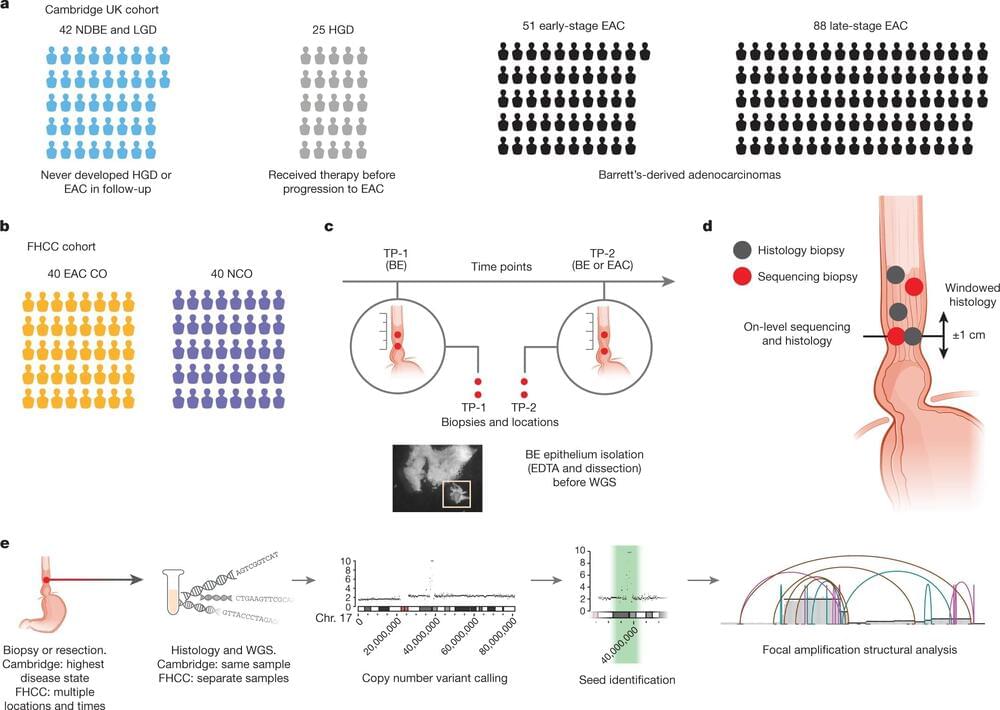A multi-institution study that included researchers from Stanford University, the University of California at San Diego, the University of Cambridge, the Fred Hutchinson Cancer Center and others has looked into the development of extrachromosomal DNA in patients with esophageal adenocarcinoma or Barrett’s esophagus.
In the paper, “Extrachromosomal DNA in the cancerous transformation of Barrett’s oesophagus,” published in Nature, researchers identify previously unknown aspects of extrachromosomal DNA presence and their potential role in Barrett’s esophagus. David H. Wang has published a News & Views piece in the same journal discussing the study.
Barrett’s esophagus is a pre-cancerous tissue abnormality that affects about 1.6% of the U.S. population. The condition is mostly harmless, defined by cells in the esophagus lining that become more intestinal-like and is frequently associated with heartburn and acid regurgitation.









Comments are closed.